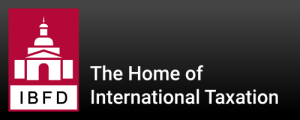Register HERE
Value added tax (VAT) has become the most important form of indirect tax in terms of both revenue for countries and international coverage, with more than 170 countries operating a VAT/GST system. An increase in globalization and digitalization has brought new ways of trading goods and services with no physical presence, bringing new challenges to businesses and tax authorities. This certification aims to address these challenges and examine current international developments and the application of VAT legislation in practice.
Programme start date: 1 October 2024
Overview and Learning Objectives
This APCVAT programme covers complex VAT topics such as real estate investments, financial services, holding companies and fixed establishments; the VAT treatment of the digital economy such as e-commerce, cryptocurrencies/ cryptoassets (NFTs); latest trends in the digitalization of business processes, including the data requested by the tax administration (e-invoices, real-time reporting, etc.) and the OECD and EU developments in this regard with countries’ specific information; comparisons of the application of VAT in different jurisdictions as well as analyses of VAT court cases, including cases before the Court of Justice of the European Union (ECJ); and detailed rules on how VAT relates to transfer pricing rules and customs law.
After following the certificate programme, you will be able to:
- Apply the principles and the policy framework of VAT/GST in international cross-border transactions among jurisdictions
- Identify complex VAT topics such as immovable property, financial services, holding companies and fixed establishment
- List the challenges in the digital economy for both the business community and tax administrations
- Assess the VAT consequences for the sharing economy and of taxing crypto assets
- Determine the relevance of data collection for VAT purposes and assess when technology can improve VAT compliance
- Compare the similarities and differences between VAT, transfer pricing and customs rules on cross-border transactions
- Identify the most recent trends and developments in international VAT
Topics Covered
- VAT in the Digital Economy
- Complex VAT/GST Topics
- Transfer Pricing, VAT and Customs
Components of Training
The certification programme is divided into 3 online courses that further consist of 6-8 modules. Each module has the following components:
- Videos: 2-3 videos per module
- Case studies: 1-2 per module
- Assignments and assessments: 2 assessments for each specialized field
- Reading material: for each module
The programme must be completed within 6 months and can be followed and completed by dedicating a minimum of 5 hours of study per week. Study materials included in the programme will be accessible for 6 months.
Who should participate
The certification programme is open for those who have more than 3 years of experience in VAT, including:
- Tax lawyers/ accountants from law and/ or accounting firms
- Tax/ VAT professionals from law/ accounting firms
- Tax/ VAT professionals/ directors of businesses
- Finance professionals/ managers/ controllers of businesses
- Government officials/ tax inspectors from tax administrations
Prerequisites (for guidance only)
No advance preparation is necessary. All required study material is provided within the online training.
Advance preparation
No advance preparation is needed for the programme.
Delivery format
Online
Study time
– Online (QAS self-study)
This certification programme consists of 3 online courses. An online course comprises several modules with video lessons of approximately 1 hour each, recommended reading materials and assignments to help apply knowledge in practice. There will be assessments to test your overall understanding.
Continuing Professional Education (CPE)
We recommend you check with your respective accrediting organizations to determine the eligibility of CPE credits.
International Bureau of Fiscal Documentation (IBFD) is registered with the National Association of State Boards of Accountancy (NASBA) as a sponsor of CPE on the National Registry of CPE Sponsors. State boards of accountancy have the final authority on the acceptance of individual courses for CPE credit. Issues regarding registered sponsors may be submitted to the National Registry of CPE sponsors through its website: www.nasbaregistry.org. Recommended NASBA CPE credits for this course is: 35.
Click on the logo to visit the website
















